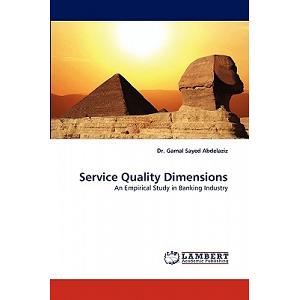- Reliability - Ability to perform the promised service dependably and accurately.
- Responsiveness - Willingness to help customers and provide prompt service.
- Assurance - Knowledge and courtesy of employees and their ability to convey trust and confidence.
- Empathy - The firm provides care and individualized attention to its customers.
Understanding the dimensions of service quality is essential for businesses aiming to enhance customer satisfaction and loyalty. Below is a detailed overview of the five key dimensions, as defined in the SERVQUAL model:
1. Tangibles
Definition: Tangibles refer to the physical aspects of a service that customers can see and evaluate. This includes:
- Physical Facilities: The cleanliness, layout, and overall condition of the service environment (e.g., offices, stores, or restaurants).
- Equipment: The quality and maintenance of tools and technology used to deliver the service.
- Personnel Appearance: The professionalism and grooming of staff members, which can influence customer perceptions.
- Communication Materials: The quality of brochures, websites, signage, and other marketing materials that convey information about the service.
Importance: Tangibles create the first impression of a business and can significantly impact customer expectations and perceptions of quality.
2. Reliability
Definition: Reliability is the ability of a service provider to deliver on its promises consistently. This includes:
- Dependability: Providing services as promised without errors or failures.
- Accuracy: Ensuring that services are performed correctly and meet customer specifications.
Importance: Reliability builds trust with customers. When businesses consistently meet their promises, they foster loyalty and encourage repeat business.
3. Responsiveness
Definition: Responsiveness reflects a company's willingness to assist customers and provide prompt service. Key aspects include:
- Timeliness: How quickly a business responds to customer inquiries or issues.
- Helpfulness: The eagerness of employees to assist customers and resolve their problems.
Importance: A responsive service environment enhances customer satisfaction by making clients feel valued and supported.
4. Assurance
Definition: Assurance encompasses the knowledge, skills, and courtesy of employees that instill confidence in customers. This dimension includes:
- Employee Competence: The expertise and training of staff members in delivering services.
- Trustworthiness: The ability of employees to convey reliability and safety in their interactions with customers.
Importance: Assurance is crucial for building customer trust, especially in industries where clients may feel vulnerable (e.g., healthcare or financial services).
5. Empathy
Definition: Empathy refers to the care and individualized attention that a firm provides to its customers. This includes:
- Personalized Service: Tailoring services to meet individual customer needs.
- Understanding Customer Perspectives: Actively listening to customers and addressing their concerns with genuine care.
Importance: Empathy fosters strong emotional connections between businesses and their customers, enhancing loyalty and encouraging positive word-of-mouth referrals.
References:

No comments:
Post a Comment